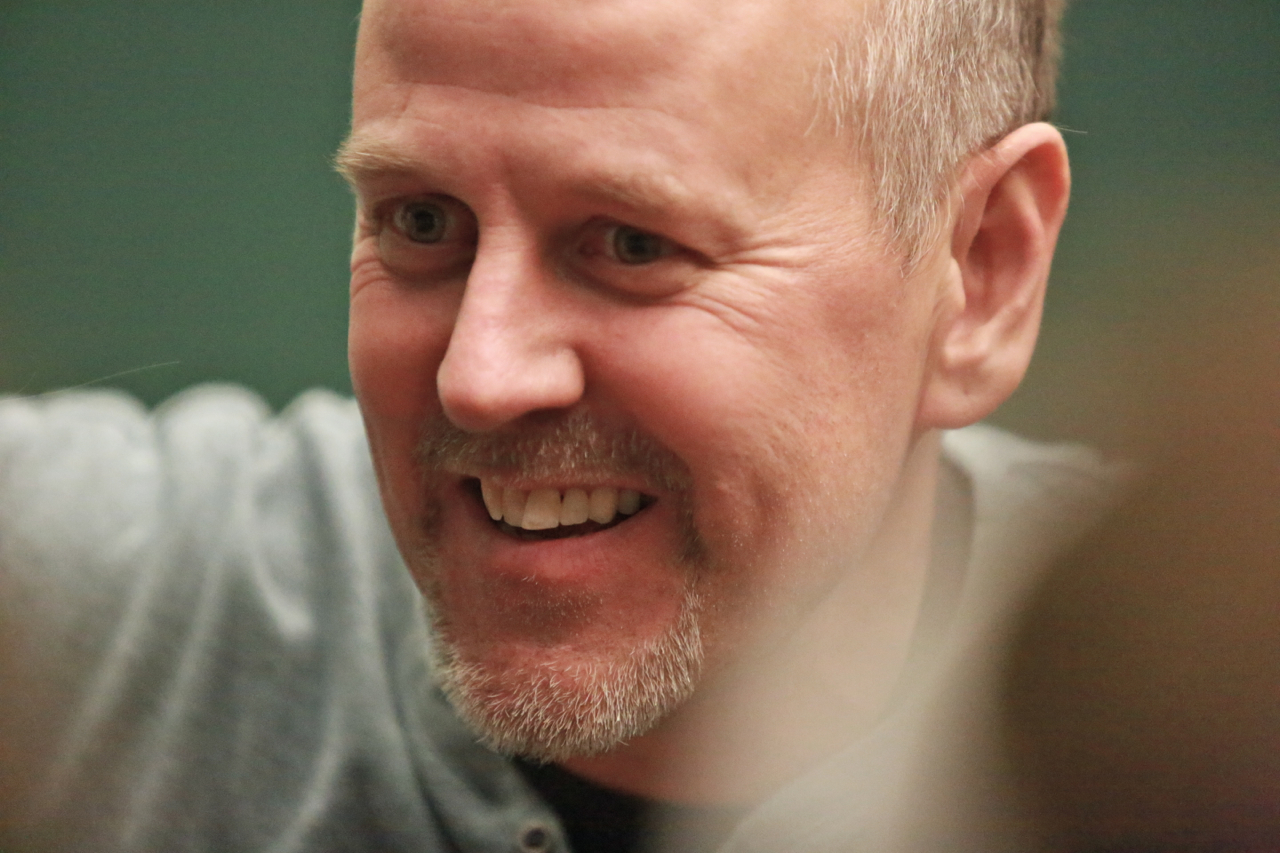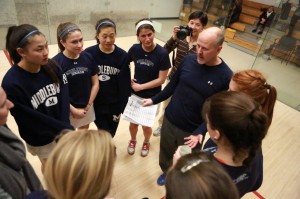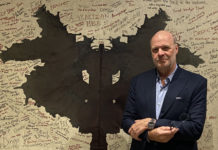By Nell Schwed
After John Illig, head coach for the Middlebury men and women, died suddenly in August 2014, the team and their program faced an unknown future. Many were wondering what the squash program at Middlebury would look like in a post-Illig world. How would the team fair without its fearless leader? Would they even take the traditional pre-season hike?
“We didn’t really know what was going to happen this year. We came into it feeling pretty lost,” Robert Galluccio, a senior captain for the Middlebury men’s team, said. “Our only goal was to do everything in our power to keep his legacy, and love of the game, going.”
For Anne Wymard, a senior captain for the women’s team, there is something about that annual hike—taking thirty college students into the wilderness for an overnight, an experience that few had had before—that makes Middlebury’s team unique.
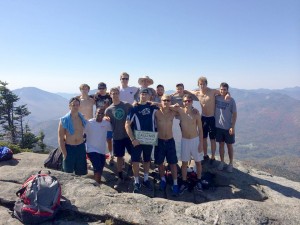 “I still remember sophomore year going up a cliff, one of the senior boys pulling me up and Robert pushing me from behind,” Wymard said. “Team building that might not happen on court, but you create it elsewhere. I think John really knew how to foster those experiences for us.”
“I still remember sophomore year going up a cliff, one of the senior boys pulling me up and Robert pushing me from behind,” Wymard said. “Team building that might not happen on court, but you create it elsewhere. I think John really knew how to foster those experiences for us.”
“Warming up for our first match and going through intros without John for the first time was tough for all of us. The feel this year is very different,” Andrew Jung, currently playing number one said. “We made a decision very early on that we are going to be the hardest working team out there.”
Mike Morgan, head tennis coach for the women at Middlebury, was named interim-coach for this season. Morgan has coached squash before, leading Middlebury’s women in a “pre-Illig” 2006 and earlier in his career as an assistant coach at Colby.
“The team has really taken a lot of what John instilled in them to another level. The major hardship for everyone is of course just missing John, and there is no reason for that to change,” Morgan said. “But their goal of paying forward John’s legacy has really helped the team rally around each other.”
Joining Morgan are two assistant coaches: Brian Cady, a Middlebury alum who played under Illig, and Alessondra Parra.
“It’s exciting to see, as a senior and a captain, freshmen stepping up and saying what drill we’d like to see more of and taking that responsibility,” Wymard said. “Regardless of having the title they think they might need to do so.”
“Morgan was a great friend of John’s, and he’s always been a good friend of our program, not to mention an amazing coach and team builder. We’re really lucky to have his guidance this season,” Galluccio added.
Though his passion clearly lay with his players, Illig worked with the College Squash Association as president and treasurer of the women’s CSA (WCSA) from 2001-2003, helping to transition between the 2002 merger of the National Intercollegiate Squash Racquets Association and the Women’s Intercollegiate Squash Association, into what is the CSA today. Illig was responsible for implementing the current team championship schedule, which alternates weekends each year, and lay the groundwork for the 2014-15 season in June, then acting-president of the men’s CSA (MCSA).
For Martin Heath, head coach of the Rochester men and former vice president, now president, of the MCSA, the future of the governing body is not about his or the other committee members’ goals, but rather Illig’s vision for future CSA successes.
“In this first year, I am essentially a caretaker of John’s vision, that’s a primary consideration for all of us,” Heath said. “Increasing the number of opportunities for squash playing in college is also a major driver of each board.”
Focus has also been placed on the potential merger between the two executive committees, a joining of the men’s and women’s boards to streamline administrative efficiency. “The CSA also has a unique mix of diverse programs, so board representation has to reflect all the diversity of our organization,” 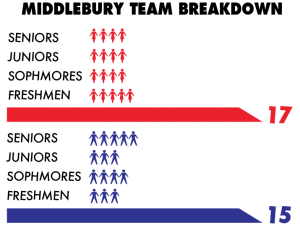 Heath continued. “Gender equity is maybe the greatest driver of appropriate representation as a vision of equal opportunity, though there are other elements we need to get right.”
Heath continued. “Gender equity is maybe the greatest driver of appropriate representation as a vision of equal opportunity, though there are other elements we need to get right.”
If the merger happens, Heath will work closely with Wendy Lawrence, head coach of George Washington University’s squash teams, and current president of the WCSA, who agrees wholeheartedly with the potential merger, citing that the majority of the executive committees are in favor of the move.
However, Lawrence noted one of the pit falls to changing the CSA structure: “Several members are worried, justifiably in my opinion, that women’s concerns may be ignored or overlooked by a CSA dominated by male coaches, even if those same men coach women’s teams.”
“At the present time in the CSA there are only nine female coaches out of sixty-four varsity teams, or just fourteen percent,” Lawrence said. “The WCSA wants to have assurances that fair representation is mandated before a merger is approved.”
While the CSA looks to merge, hopefully with guarantees of equal platforms for men and women, squash teams across the country move into the last months of their season.
For Jung, Galluccio, Wymard and their teammates, this year has a special resonance. They are not playing to win, to accumulate national titles or accolades. Rather they’re stepping on court to honor the legacy their beloved coach left behind.
“The perfect season is the perfect struggle, and we are taking every step of it together, working hard and holding John close to our hearts,” Jung said. “While every other team is searching for inspiration, we have found it.”


